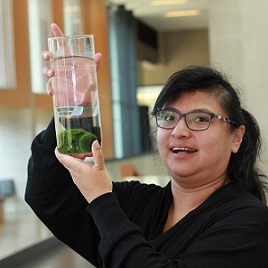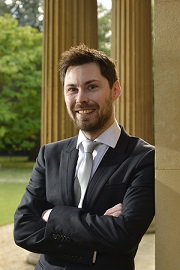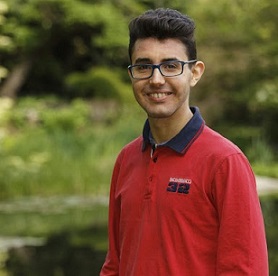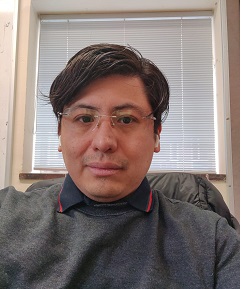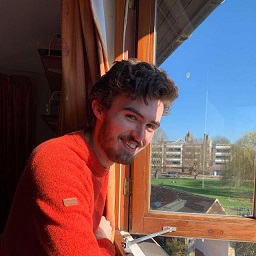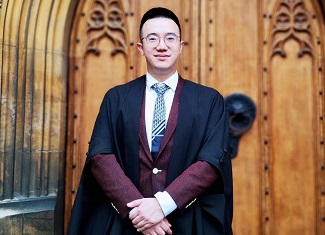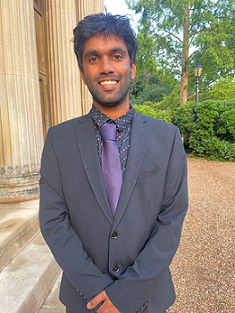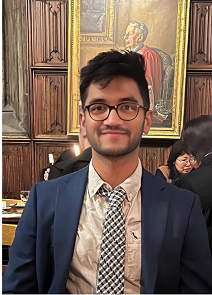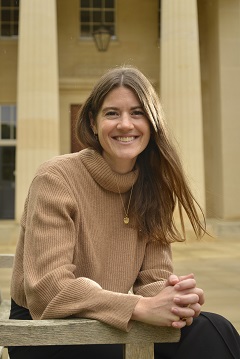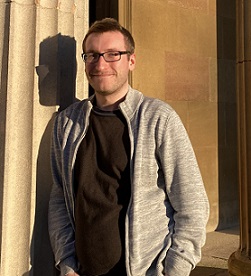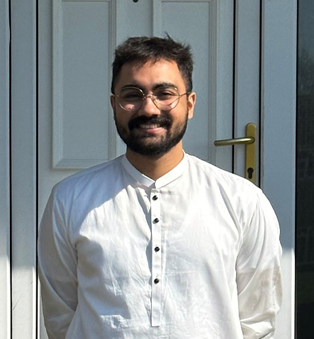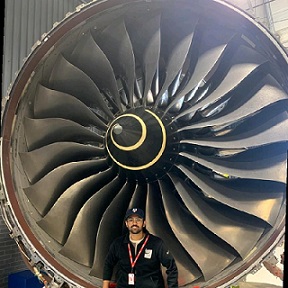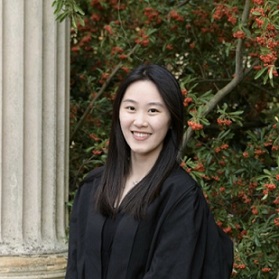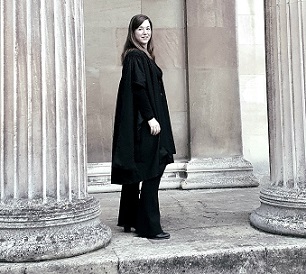Academic Tutors and TAs
Academic Tutors and TAs
Each subject cohort has one Academic Tutor and one Teaching Assistant to teach and guide students through course material.
Academic Tutors are experts in their field, either doing postdoctoral or PhD research at the University of Cambridge. They will deliver instruction daily to students in their chosen subject area, emphasising interdisciplinary learning and practical application of material.
Teaching Assistants are current undergraduate students at the University of Cambridge. They will accompany students on museum and lab visits, assist with academic material delivered by the Academic Tutors, and supervise afternoon workshops. Additionally, Teaching Assistants will live in the accommodation with students and attend all Downing-organised off-site excursions to ensure safeguarding.
Tutors
Biology: Dora Cano-Ramirez
Dora came from Mexico to the UK for her PhD degree at the University of Bristol under the supervision of Prof. Antony Dodd (now at John Innes Centre) studying signalling pathways and circadian rhythms in plants. She later joined the Department of Plant Sciences at the University of Cambridge studying the circadian clock and polar auxin transport in Prof. Alex Webb laboratory. Currently, she is a research associate at the Sainsbury Laboratory University of Cambridge in Prof. James Locke group focusing on understanding the stochastic nature, or randomness, of transcription factors and gene expression in plants growing under variable environmental stresses.
Biology: Nathan James
Nathan is the Mays Wild Research Fellow at Downing College in the University of Cambridge, where he works on postdoctoral research at the MRC Laboratory of Molecular Biology. His research focuses on the mechanistic basis of circadian proteostasis in human cells, with prior work on Structural Biology and specifically electron cryomicroscopy. He currently supervises undergraduates for second year Biochemistry and Molecular Biology, and will soon be teaching a full course in Ethical Issues in Genetic Modificationfor the Faraday Institute in Cambridge.
Chemistry: Andrea Rogolini
Andrea Rogolino is a 1st year PhD student at the Department of Chemistry of the University of Cambridge and at Downing College. After graduating in Chemistry at the University of Padova, Italy, he joined the Nanoscience and Nanotechnology Doctoral Training Centre (NanoDTC) in Cambridge. After completing his Master of Research (MRes), he joined the research group of Professor of Energy and Sustainability Erwin Reisner. Coming from a sun-kissed, sea-embraced mediterranean peninsula, he could only be fascinated by the chemistry of light and sustainability. After familiarising with research on catalysis driven by light through research projects in Spain and Germany, he fell in love with the topic of artificial photosynthesis, which he currently investigates in his research. Andrea loves to picture science and especially chemistry as an endless game of laws and mechanisms that reveal the beauty of Nature. In his free time, he enjoys playing video games, going to the cinema, and swimming in the clearest seas.
Chemistry: Patryk Wesolowski
Patryk is currently working towards a PhD in Chemistry at Clare College in the University of Cambridge, following an MPhil (also at Cambridge) and undergraduate study at the University of Gdansk in Biotechnology. His research focuses on protein assemblies using the coarse-grained UNRES force field, and he has been cited as an author on a number of papers in this area. He currently works as a supervisor, demonstrator, and invigilator within the Department of Chemistry at the university.
Computer Science: Marco Aquino-López
Marco Antonio Aquino-López is a leading researcher at the intersection of computer science, statistics, and environmental studies. With degrees in mathematical engineering, probability and statistics, and a PhD from Queen's University Belfast, Marco has pioneered innovative software tools like rplum that are becoming the standard for advanced statistical analysis in fields like paleoclimate research. As a research associate and lecturer, he shares his expertise in developing probabilistic models for data alignment and analysis, publishing in top journals, and presenting at prestigious conferences. Marco's interdisciplinary work, integrating computer science and mathematical modelling to tackle complex environmental challenges, has earned him recognition from CONACyT, the Cambridge Centre for Data Driven Discovery, and more. Through his interdisciplinary work applying computer science and quantitative methods to environmental challenges, Marco exemplifies the potential for technological innovation to address critical global issues.
Economics: Fergus McCormack
Fergus is an PhD student in Economics at the University of Cambridge. He completed his undergraduate degree in Economics at the University of Edinburgh, before going on to complete an MPhil in Economic Research at Cambridge. His PhD research is focussed on the economics of mental health. His projects include using empirical techniques from economics to assess the impact of childbirth on mental health, how this affects women's economic outcomes and using genetics to determine the causal effect of happiness on economic outcomes. Before his PhD he also completed internships at the European Central Bank, Barclays Investment Bank and spent some time teaching English in Japan.
Economics: Ruohan Qin
Ruohan Qin is a current PhD candidate in Economics at the University of Cambridge, specialising in Networks, Game Theory and Economics of Conflict. As a College Teaching Associate and Faculty Teaching Assistant, he delivers supervisions and classes for undergraduate and postgraduate courses including IIA Microeconomics, IIB Industry, MPhil Advanced Microeconomics, and MPhil Advanced Microeconomics II. Additionally, he works as an Admissions Interviewer for the BA in Economics at various colleges.
Engineering: Arshad Fasiludeen
Arshad is working towards a PhD in Mathematical Modelling within the Engineering department at the University of Cambridge, following MRes study in Future Propulsion and Power at Cambridge and a first-class honours degree in Aerospace Engineering from the University of Southampton. His professional experience includes work at Collins Aerospace, one of the world’s largest suppliers of aerospace and defense products, involved with developing optimised gyroscope designs using mathematical-based modelling.
Engineering: Rish Arora
Rish is a PhD student in the Department of Engineering and is focused on developing novel manufacturing processes. He is interested in improving material utilisation in the automotive industry, specifically working towards reducing scrap from metal stamping. This technology is currently patent pending and is being used in a spin-out company from the university. He graduated with a Masters in Mechanical/Automotive Engineering in 2019 and had spent 2.5 years working as a Specialist Interior design engineer at Toyota and Lexus.
HSPS: Edward Murambwa
Edward is a final-year PhD research in the field of Politics and International Studies at the University of Cambridge. With a Master’s in Political Studies and undergraduate degrees in Philosophy, he has spent time researching and working on a diverse range of specialisms, including Ethics, Politics of Difference, and Critical Perspectives in Bureaucracy and Public Administration. He has spent time working as an undergraduate teacher at universities in South Africa, and also served as the Features Editor for the Cambridge Review of International Affairs journal.
HSPS: Julien Dumont
Julien is a final-year PhD candidate in Politics and International Studies at the University of Cambridge, where he is currently working on research related to Populism and Technocracy in Britain and France. He also holds two Master’s degrees from the London School of Economics, where he focused on Political Theory and European Union Politics. He currently supervises on Comparative Politics: France and Germany and British and European Union Politics to undergraduate students in Cambridge, and is a visiting fellow at Sciences Po, Paris.
Law: Rebecca Freund
Rebecca is the Parry-Anderson Fellow in Law and College Associate Professor at Downing College in the University of Cambridge. She has supervised on Administrative Law, Human Rights Law and Constitutional Law at several colleges within the university. Rebecca’s research interests lie in the field of public law, with a special interest in the history of public law and in particular the extent to which governance of the British Empire affected the development of core public law principles in Britain. She has also worked as a Postdoctoral Fellow in Law at King’s College London on a global project mapping legal responses to Covid-19.
Law: Nina Pursac
Nina is currently working towards a PhD in Legal Studies focusing on Human Rights Law at the University of Cambridge. She also holds LLM and LLB degrees from the University of Split, Croatia, and University of London, and won an Erasmus Scholarship to work on Master’s thesis research at the Universita Europea di Roma in Italy. She has spent time working in a range of thinktanks, such as the QM Global Policy Institute where she led the institute’s submission for evidence of the UK government’s implementation of the UN Convention on the elimination of all forms of racial discrimination. She has also spent time working in university teaching at the University of London, teaching several modules with a focus on Business Law.
Maths: Keenan Down
Keenan is a PhD researcher in Computational Neuroscience at the University of Cambridge, following a first-class MMath degree from the University of Warwick. With a specialisation in Pure Mathematics and Algebraic Geometry in his undergraduate study, he now focuses on topics within Applied Mathematics and Information Theory as part of his research, with a key theme of his research on artificial neural networks and the development of mathematical tools for understanding cognition and information processing. While at Warwick he also worked as a teaching assistant for undergraduate mathematicians.
Maths: Luke Hamilton
Luke is currently working towards Part III Mathematics at the University of Cambridge following undergraduate study with first-class honours at Trinity College, Dublin. He has spent time working as a teaching assistant in Advanced Classical Mechanics at Trinity College Dublin, teaching 2nd and 3rd year undergraduates in tutorials while still an undergraduate himself.
Physics: Awais Ali
Awais is currently researching for his PhD in Energy and Turbomachinery at the University of Cambridge. He holds two previous Master’s degrees in Future Propulsion and Power and Mechanical Engineering with Aeronautics from the Universities of Cambridge and Glasgow, respectively. He has completed work placements and research projects at esteemed engineering companies such as Rolls Royce, and currently supervises undergraduate students in the field of Thermodynamics and Thermofluids.
Physics: Soham Kaur
Soham is currently researching towards a PhD in Engineering at the University of Cambridge, following both undergraduate and Master’s level study at Cambridge in Aerospace and Aerothermal Engineering and Future Propulsion and Power. He has taken part in several research roles and positions at the University of Cambridge, including working as part of the Aviation Impact Accelerator which works to help reduce the carbon emissions of the Aviation industry, and working as a laboratory demonstrator to undergraduate students
Psychology: Grace Leung
Grace is reading towards a PhD in Psychiatry at the University of Cambridge, following an MPhil in Medical Science (also at Cambridge) and undergraduate study in Psychology at the University of Hong Kong. Her research focuses on adolescent mental health. She has also spent time as a research assistant with Partizan International, a digital health specialist company, where she led VR-based EEG trials examining the association between perceived stress and personality traits. She currently supervises undergraduate students in four colleges on Psychology and Behavioural Science.
Psychology: Laura Stolp
Laura is a final-year PhD researcher in Psychology at the University of Cambridge, following undergraduate and Master’s-level study at the University of Amsterdam. In a research career spanning several years she has worked on a number of projects with a particular focus on using EEG and MRI scans in a variety of fields, such as ageing, cognitive reserve, the connection between vitamin D deficiency and obesity, and young people at clinical high risk for psychosis.
“Students are pushed to their academic potential and have all risen to the challenge.”
Lara, 2023 Summer Programme Teaching Assistant and University of Cambridge student
“It’s amazing to see so many young and incredibly talented students come to Cambridge and get some insight into what it's like to study at university and dive deep into the curriculum.”
Florian, 2023 Summer Programme Teaching Assistant and University of Cambridge student

